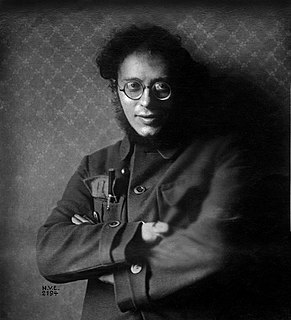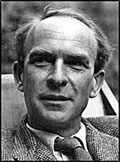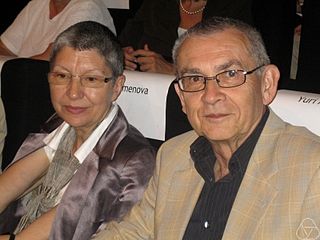A Quote by Paul Ricoeur
Ordinary language carries with it conditions of meaning which it is easy to recognize by classifying the contexts in which the expression is employed in a meaningful manner.
Related Quotes
Confusion conditions activity, which conditions consciousness, which conditions embodied personality, which conditions sensory experiences, which conditions impact, which conditions mood, which conditions craving, which conditions clinging, which conditions becoming, which conditions birth, which conditions aging and death.
Correct is to recognize what diseases are and whence they come; which are long and which are short; which are mortal and which are not; which are in the process of changing into others; which are increasing and which are diminishing; which are major and which are minor; to treat the diseases that can be treated, but to recognize the ones that cannot be, and to know why they cannot be; by treating patients with the former, to give them the benefit of treatment as far as it is possible.
We think only through the medium of words. Languages are true analytical methods. Algebra, which is adapted to its purpose in every species of expression, in the most simple, most exact, and best manner possible, is at the same time a language and an analytical method. The art of reasoning is nothing more than a language well arranged.
The continually progressive change to which the meaning of words is subject, the want of a universal language which renders translation necessary, the errors to which translations are again subject, the mistakes of copyists and printers, together with the possibility of willful alteration, are themselves evidences that human language, whether in speech or print, cannot be the vehicle of the Word of God.
Algebra reverses the relative importance of the factors in ordinary language. It is essentially a written language, and it endeavors to exemplify in its written structures the patterns which it is its purpose to convey. The pattern of the marks on paper is a particular instance of the pattern to be conveyed to thought. The algebraic method is our best approach to the expression of necessity, by reason of its reduction of accident to the ghostlike character of the real variable.
Of the properties of mathematics, as a language, the most peculiar one is that by playing formal games with an input mathematical text, one can get an output text which seemingly carries new knowledge. The basic examples are furnished by scientific or technological calculations: general laws plus initial conditions produce predictions, often only after time-consuming and computer-aided work. One can say that the input contains an implicit knowledge which is thereby made explicit.
You have certainly observed the curious fact that a given word which is perfectly clear when you hear it or use it in everyday language, and which does not give rise to any difficulty when it is engaged in the rapid movement of an ordinary sentence becomes magically embarrassing, introduces a strange resistance, frustrates any effort at definition as soon as you take it out of circulation to examine it separately and look for its meaning after taking away its instantaneous function.
The full meaning of a language is never translatable into another. We may speak several languages but one of them always remains the one in which we live. In order completely to assimilate a language it would be necessary to make the world which it expresses one's own and one never does belong to two worlds at once.
If there is a species which is more maltreated than children, then it must be their toys, which they handle in an incredibly off-hand manner. Toys are thus the end point in that long chain in which all the conditions of despotic high-handedness are in play which enchain beings one to another, from one species to another --cruel divinities to their sacrificial victims, from masters to slaves, from adults to children, and from children to their objects.









































